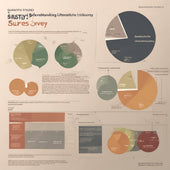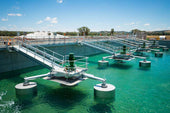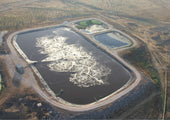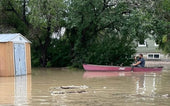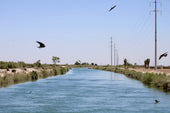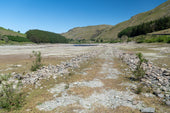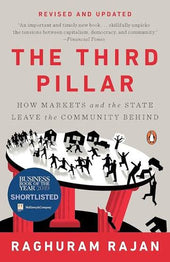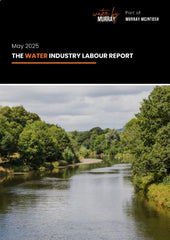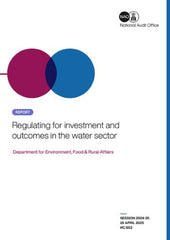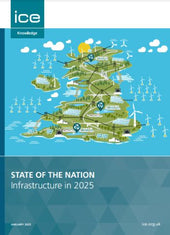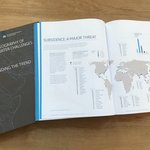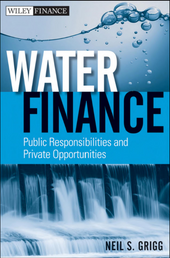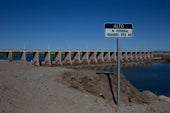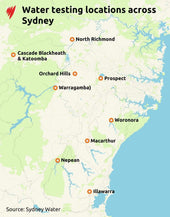
Canadian business execs risk lawsuits from climate and nature risks
Canadian company directors who fail to address climate and nature risks — including extreme weather, biodiversity loss, or water pollution — could face negligence claims and lawsuits, according to Canadian law firm Resilient LLP, commissioned by Commonwealth Climate and Law Initiative (CCLI).
“Canadian directors have a legal duty to address risks stemming from biodiversity loss, freshwater stress, ecosystem degradation, and extreme weather. Failing to do so could expose them to a range of legal action including shareholder and creditor lawsuits as well as greenwashing and negligence claims,” the legal opinion reads.
According to the firm, climate and nature-related risks that fall within directors’ legal duties could include:
- Physical risks, such as floods, droughts, wildfires and pollinator losses;
- Transition risks, such as new regulations and shifting market expectations;
- Systemic risks, such as biodiversity failure or ecosystem collapse; and
- Legal risks, including litigation for harm caused to indigenous lands or breach of disclosure obligations.
Precedent for this legal opinion exists in business regulations.
Under the Canada Business Corporations Act (CBCA) and similar provincial statutes, directors have a duty to act with care, diligence and loyalty in the best interests of the corporation. “This includes a legal obligation to identify and manage foreseeable material risks,” Resilient LLP says.
Plus, recent amendments to Canada’s Competition Act in July 2024 require companies to be much more specific about how their products and services will affect the environment.
“As consumer awareness of environmental and social issues has grown, so too has the focus on deceptive marketing practices, particularly “greenwashing” — where businesses exaggerate or falsely claim the environmental benefits of their products or services,” Noonan and Cole Southall of the law firm Fillmore Riley noted in a blog for Mondaq. “The 2024 amendments reflect this trend, introducing stricter regulations around environmental representations.”
Consequences
In addition to greenwash claims from consumers, directors also face the follow risks, the law firm says:
- Shareholder or creditor lawsuits, including actions brought on behalf of the company where directors are alleged to have breached their duties
- Claims from investors, creditors, directors and officers that the company’s decisions relating to nature risks caused them unfair prejudice
- Claims for failing to meet disclosure obligations, particularly where companies omit or downplay material risks related to nature
- Legal action launched by third parties for negligence or nuisance (i.e. if the director’s breach of the duty is the cause of imminent harm to a stakeholder)
- Liability for failing to consider the rights of indigenous peoples, especially when corporate activities affect indigenous lands or resources
This type of litigation has already made it to Canada.
For example, a 2023 decision by the Federal Court of Appeal (FCA) allowed a s.7 Charter claim against the Government of Canada for not meeting its greenhouse gas (GHG) emissions targets
In La Rose v. Canada, 15 children and youth filed a statement of claim against the federal government, alleging Canada failed to address the problem of climate change, thereby violating their equality rights under s. 15 of the Canadian Charter of Rights and Freedoms. They argue, among other things, Canada has failed to meet its GHG targets as established in the 2015 Paris Agreement.
“This decision follows the trend of courts’ willingness to entertain novel climate change claims,” Torys LLP authors wrote in a 2024 Mondaq blog post.
Who’s at risk of litigation
Nature-related legal risks are particularly present in the following industries, says Resilient LLP:
- Mining and energy sectors face risk of litigation, regulatory intervention or project delays due to biodiversity loss, water scarcity, and failure to consult or obtain consent from indigenous people
- Agriculture and food sector is exposed to soil degradation, pollinator decline, drought, flooding and related supply chain disruption
- Real estate and construction sectors are vulnerable to increased flooding, wildfires, wetland loss, and planning restrictions on ecologically sensitive lands
- Finance and insurance sectors face systemic exposure to nature-related risks through investments and underwriting of nature-dependent clients.
The broker value-add
If business executives wish to avoid greenwashing claims against them, brokers can help their directors and officers (D&O) clients navigate this risk by ensuring their climate statements are both achievable and well-reviewed, one broker expert previously shared with Canadian Underwriter.
“A lot of these companies are engaging their trusted legal advisors on what to say and how to say it,” said Rob Hanson, senior vice president of FINPRO at Marsh Canada Ltd. “We’re also able to weigh in when speaking with them because we have the ears of the underwriters, too.
“[If] you’re saying you’re going to reduce your greenhouse gas emissions, [or] that currently you’ve reduced them by X [amount], prove it.” he said. “That needs to be really ironclad.”
Additionally, Resilient LLP recommends directors identify and assess their nature-related risks, and then take the appropriate actions to balance, manage or mitigate them.

Alyssa DiSabatino
Alyssa Di Sabatino has been a reporter for Canadian Underwriter since 2021, covering industry trends, market developments, and emerging risks.
The post Canadian business execs risk lawsuits from climate and nature risks appeared first on Canadian Underwriter.


